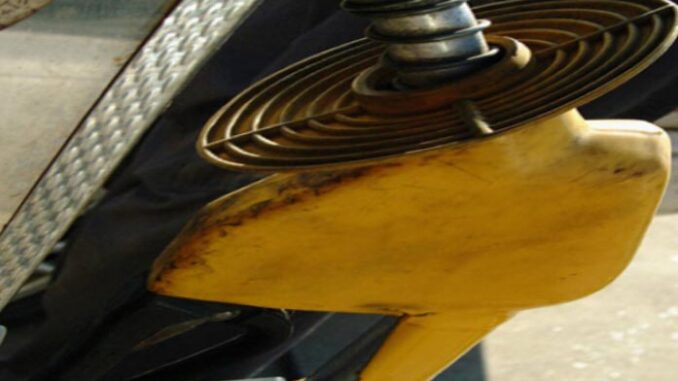
On Wednesday, December 13th, Arizona Senate President Warren Petersen announced a plan to alleviate the extremely high gasoline prices experienced by Maricopa County drivers this past summer. This price crunch was caused by a combination of two events. First, there was a supply shortage of the special gasoline blend, Cleaner Burning Gas (CBG), used only in Arizona. Second there was a neglectful failure of Governor Hobbs to seek relief from the EPA in the form of a waiver to the mandated use of CBG.
According to Sen. Petersen, the proposed relief will come in the form of a legislative bill, sponsored jointly by Sen. Justine Wadsack and Rep. Alexander Kolodin, that will address both issues.
The remedy for the supply shortage is being met by using market forces to keep prices down. This is to be accomplished by increasing the menu of available blends to eight from the current two. Since the bill has not been introduced yet, we do not know what those additional six blends are or whether the EPA will approve any of them for use in Arizona. However, Sen. Petersen explained that these additional blends are likely to be approved because they all meet emission standards at or near the same level as the CBG blends, and some of them are already been used by states with strict pollution standards, like California.
Since gasoline is a commodity, it is likely to react quite well to the laws of supply and demand. Having eight blends to choose from will pretty much ensure that supplies are kept sufficiently high, thereby reducing the likelihood price spikes like those we experienced in the summer of 2023.
The second issue that this bill would address is the failure of the governor to request a waiver from the EPA. There is always the possibility that prices will spike as a result of shortages, even if the proposed list of blends is approved by the EPA. Under that scenario, the last resort is for a request of a waiver. This bill would add the speaker of the house and the president of the senate to the list of individuals who receive notices of impending shortages from refineries, and who are allowed to request a waiver from the EPA.
The specter of a Hobbs veto may be real, judging by her implied opposition in her characterization of this proposal as “half-baked”. However, Sen. Petersen has expressed optimism concerning democrat support because 2024 will be an election year and it is not likely that democrats will be eager to be viewed as opposing a measure that benefits middle-class voters as much as this one would.
Another reason for optimism is that a similar bill garnered significant support from democrats during the 2020 legislative session.
In 2020, senate bill SB1477 would have addressed the supply issue, albeit in a somewhat different manner. It passed the senate handily by a vote of 25-2-3. Only two senate democrats, Martin Quezada and Victoria Steele, voted against it. Without senate democrat support, it would not have passed because two republicans, Paul Boyer and Heather Carter, failed to support it.
Eventually, SB1477 failed because House Speaker Rusty Bowers failed to advance it in the house.
One notable difference between the current proposal and that of 2020’s SB1477 is that the latter did not have a provision to expand who can receive alerts and request EPA waivers, and that could be a stumbling block for democrats in 2024.
Judging by the bills that have been introduced thus far, it seems that a major issue to be addressed during the 2024 session is water use and management. After the December 13 press conference, it seems that gasoline prices will also be a significant issue.
